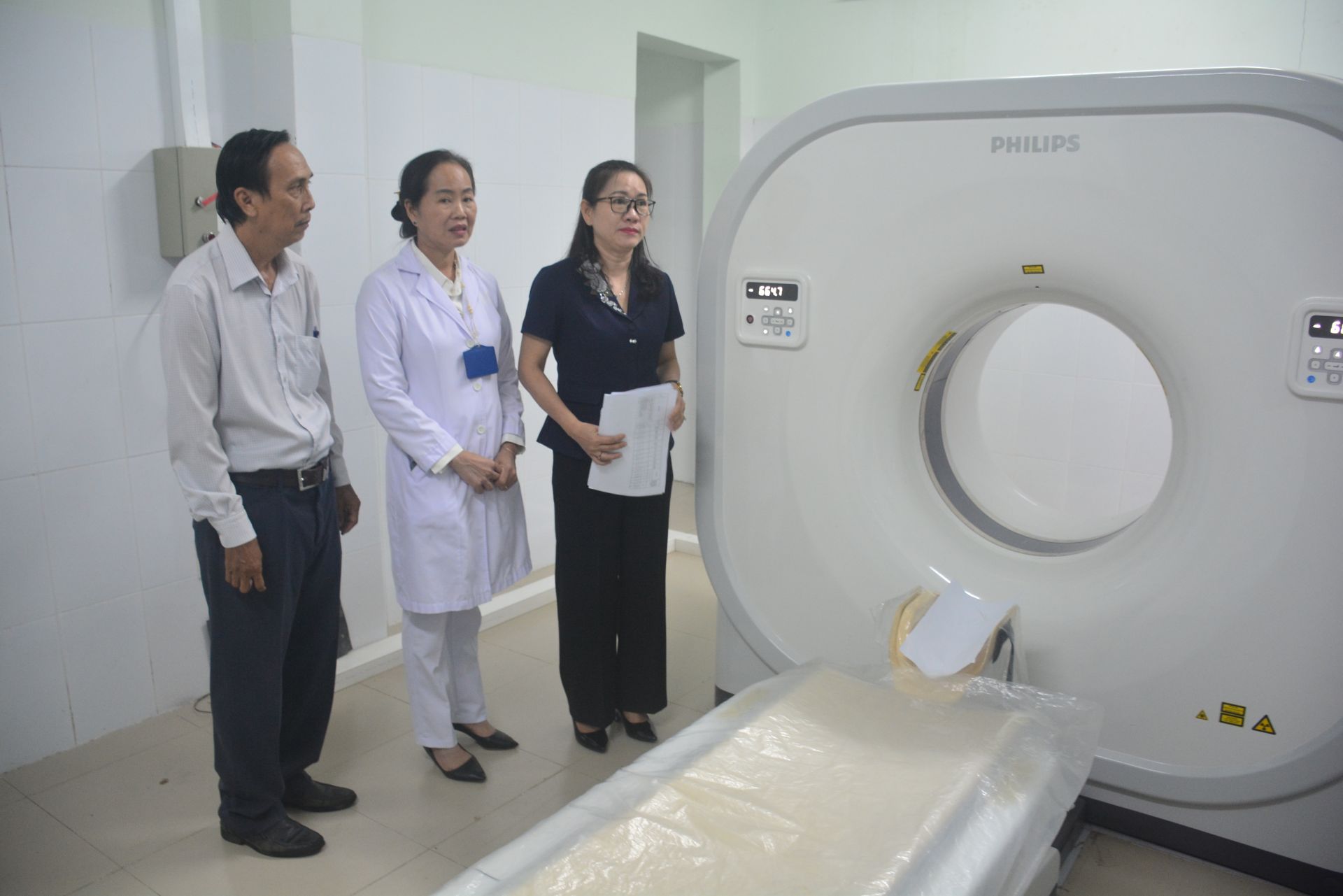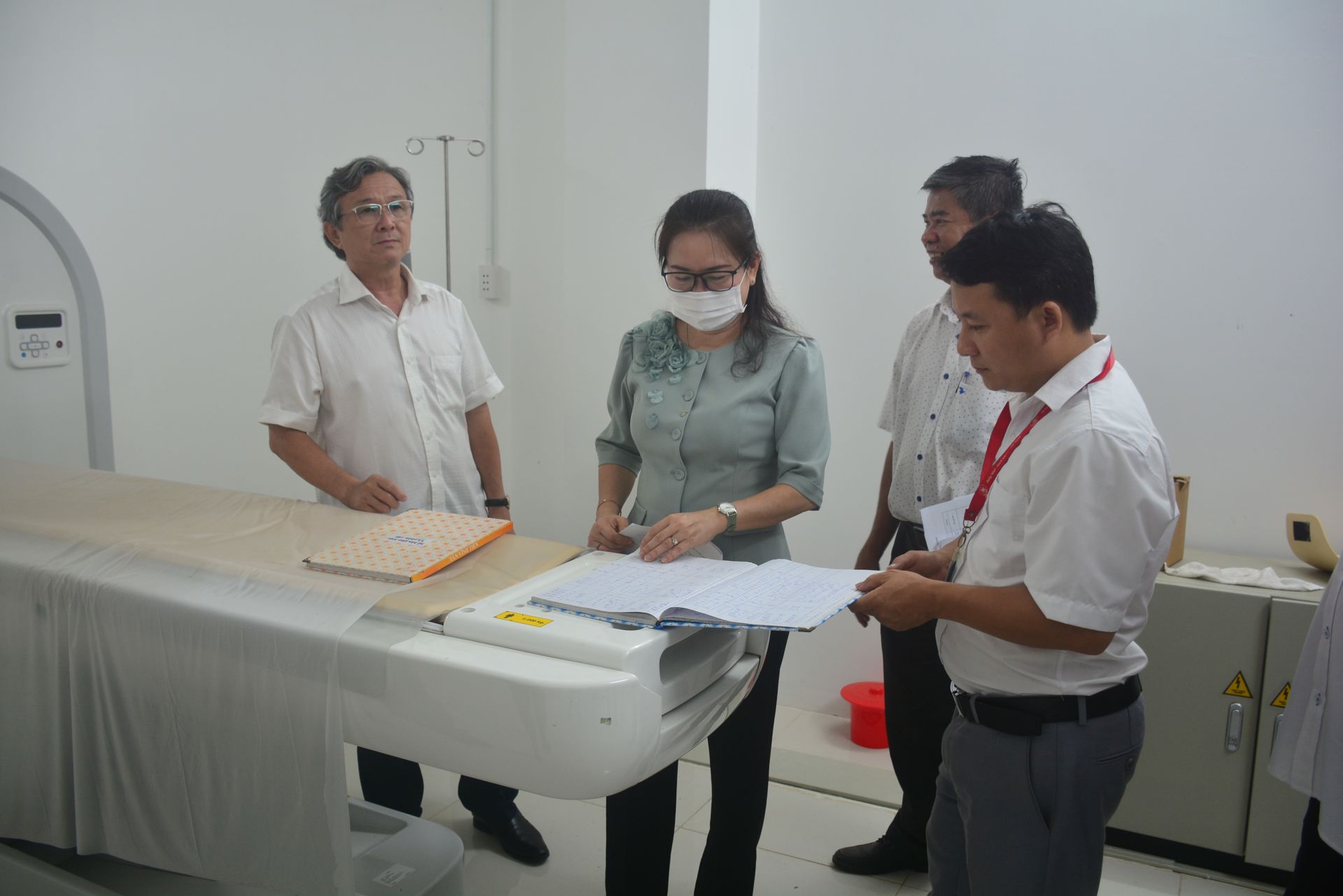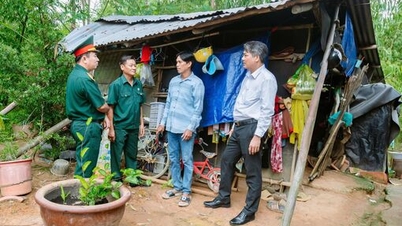Tay Ninh strictly manages the number of employees in public service units assigned by the Ministry of Home Affairs and the Central Organizing Committee. Every year, the Provincial People's Committee submits to the Provincial People's Council for approval the number of employees in public service units receiving salaries from the State budget and receiving salaries from self-funded service revenue sources that partially cover regular expenses.
Reduce direct support
The management and use of the number of employees must be in accordance with regulations, in accordance with practical situations, task requirements, and in accordance with the policy of streamlining the payroll in accordance with the spirit of Resolution No. 39-NQ/TW of the Politburo on streamlining the payroll and restructuring the staff, civil servants, and public employees.
In the 2015-2021 period, the province reduced 2,124 people, a reduction of 11.01% compared to the number of employees approved in 2015. In the 2021-2023 period, it reduced 604 people working on salaries from the State budget compared to the number assigned in 2021 of 17,548 people (excluding 67 teacher positions for the 2022-2023 school year, a reduction of 3.44%).
Provincial People's Council surveys grassroots health activities in 2024.
Implementing the Project on streamlining the payroll of ministries, branches and localities by 2030, the Provincial People's Committee will deploy staff streamlining according to the provisions of Decree No. 29/2023/ND-CP of the Government on staff streamlining policy.
Pursuant to Decree No. 29/2023/ND-CP of the Government, agencies and units shall develop annual staff streamlining plans and implement them according to the issued plans. Therefore, as of 2023, the Provincial People's Committee has not yet developed a staff streamlining project until 2030.
As of June 30, 2023, the province has 36 autonomous public service units (4 units self-insuring regular and investment expenditures, 32 units self-insuring regular expenditures) out of a total of 521 public service units, accounting for 6.91%.
Currently, the Provincial People's Committee is developing a plan to implement the autonomy roadmap according to Decree No. 60/2021/ND-CP of the Government regulating the financial autonomy mechanism of public service units in the province.
It clearly defines the goals by 2025 to increase the autonomy of at least 2 public service units from the level of ensuring a part of regular expenditure to the level of ensuring regular expenditure, and annually reduce at least 2.5% of direct support expenditure from the State budget.
According to the assessment, the assignment of financial autonomy to public service units has brought about positive results, the units have proactively used the allocated State budget funds more effectively to perform their tasks; at the same time, they have proactively used assets and human resources at the unit reasonably to develop and improve the quality of service activities; increased revenue, saved expenses, and increased income for civil servants and employees.
Proactively decide on solutions to improve labor quality and complete professional tasks according to assigned functions and tasks. The public service unit has made progress in increasing the level of autonomy compared to the previous period, improving financial autonomy, exploiting legal sources of revenue to gradually ensure regular operating expenses and reserve a portion for investment expenses, enhancing the quality and efficiency of operations, and improving the lives of workers.
However, increasing the level of autonomy of public service units is still difficult because public service units have revenue sources that do not ensure the level of autonomy (schools have tuition revenue sources that do not ensure the level of autonomy).
As a result of the implementation of converting public service units into joint stock companies and other types of enterprises, currently, the province has not converted public service units into joint stock companies and other types of enterprises.
Review staffing targets
After 6 years of implementation, with a serious and resolute spirit in leadership and direction, through many appropriate methods, the objectives set out in the resolution have basically achieved good results. Party committees, party organizations, cadres and party members have raised awareness and created unity in continuing to innovate and reorganize the apparatus of the political system and the apparatus of public service units in a streamlined and effective direction.
The primary health care system still faces many difficulties.
Public service units are streamlined and rational, ensuring the principle that the same group of tasks can only be performed by one organization or unit, and must be suitable to the conditions of the unit and locality in a streamlined and effective manner.
The implementation of the streamlining regime and policy has created consensus among cadres, civil servants and public employees. The implementation process ensures correct principles and order of implementation steps.
The arrangement of the staff of civil servants and public employees must be based on the selection of those with good qualifications, capacity, and moral qualities to retain them for long-term, stable work; at the same time, encourage the number of civil servants and public employees with substandard professional qualifications, limited working capacity, old age, and poor health to retire early and quit their jobs to enjoy the policy of streamlining the payroll.
Innovation and reorganization of the political system to be streamlined and operate effectively and efficiently is a major policy. Implementation is difficult, complicated and sensitive, involving many sectors and fields - especially personnel work. Therefore, it cannot be done immediately but requires time, a specific roadmap, guidance from superiors, and synchronous coordination from many levels and sectors.
The number of public service units is large, small in scale, mainly relying on the State budget, the autonomy of public service units is still limited, the revenue from public service units is small and develops slowly, mainly relying on financial resources from the State budget.
The Central Government is slow to issue the List of basic and essential public service units, so localities cannot determine to establish some units in need (Urban Order Management Team, Investment Promotion Center, etc.).
When implementing the organization of public service units, it will affect the leading officials of agencies and units, but the Central Government does not have a support policy for these subjects, which somewhat affects the organization and implementation of the organization of the organization.
The implementation of socialization and autonomy of public service units in the health and education sectors is still slow, requiring time and a roadmap for implementation, and there must be sufficient legal basis for implementation, making it difficult to reduce staff according to regulations.
The majority of the province's public service units are Education and Health, therefore, when implementing organizational restructuring and staff reduction according to regulations, it is mainly implemented in these units, leading to many difficulties for localities, not having enough staff to arrange according to the prescribed norms of the Education and Health sectors.
Ministries and sectors should promptly advise the Prime Minister to issue a List of basic and essential public services in each sector and field so that localities can use it as a basis to arrange public service units according to Decree No. 120/2020/ND-CP of the Government. To implement uniformly nationwide, it is proposed to issue a framework of criteria and standards for the quality of public services using the State budget.
The Central Government should review the targets for reducing public service staff - especially in Education and Health. It is necessary to review and re-evaluate the current status of the number of students, schools, classes and hospital beds in each locality, compare it with the current number of staff to assign an appropriate rate of public service staff reduction, and have enough civil servants to meet the requirements for serving the health and education sectors according to the local situation.
Ministries, sectors and fields should soon issue documents guiding the List of public career services using the State budget according to new regulations to promote the implementation of the mechanism for ordering the performance of public career services, towards improving the autonomy of public career units.
The policy of reducing support and increasing autonomy for public service units in recent times shows that the number of fully autonomous units is still very low. Recent surveys and monitoring by elected agencies have noted that many public health facilities are facing many financial difficulties. Streamlining, merging, dissolving, consolidating, reducing budget support and increasing the level of autonomy (financially) is not a simple problem.
Viet Dong
(to be continued)
Source: https://baotayninh.vn/bai-3-so-luong-don-vi-tu-bao-dam-chi-thuong-xuyen-con-thap-a181538.html







![[Photo] General Secretary To Lam chaired the Politburo's working session with the Standing Committees of Party Committees of Central Party agencies.](https://vphoto.vietnam.vn/thumb/1200x675/vietnam/resource/IMAGE/2025/9/9/8343386e1e8f43c6a3c0543da7744901)


![[Photo] Cambodia's Techo International Airport Officially Opens](https://vphoto.vietnam.vn/thumb/1200x675/vietnam/resource/IMAGE/2025/9/9/330836bb28ad4ee4bdd512cc1a2d0849)


















![[Photo] Politburo works with the Standing Committees of Vinh Long and Thai Nguyen Provincial Party Committees](https://vphoto.vietnam.vn/thumb/1200x675/vietnam/resource/IMAGE/2025/9/8/4f046c454726499e830b662497ea1893)




































































Comment (0)